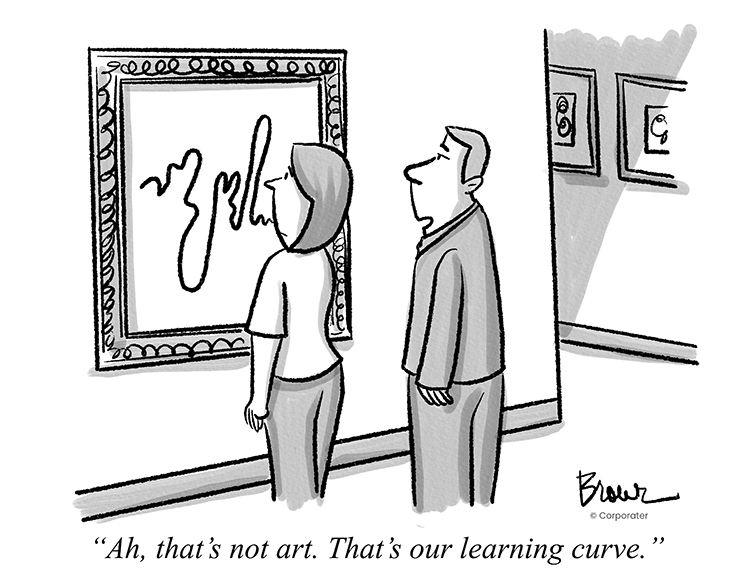
When discussing performance measurement with organizations, whether OKR or Balanced Scorecard, we emphasize the essential role of learning — what the results tell you and how you can use that information to improve performance in the future. Most people nod encouragingly, but there are inevitably a few eye rolls from the more alpha types who are saying to themselves, “Learning is great, sure, but I want to hit my numbers every time!”
There is nothing wrong with a desire to excel and achieve breakthrough performance, in fact promoting visionary thinking is one of the primary attributes and benefits of measuring strategy execution. But how you go about it matters. Framing the journey as a learning experience will prove much more beneficial than demanding results at all costs. Here are three things to consider as you frame your measurement initiative in the hearts and minds of your employees.
- Reinforce the focus on learning
Here’s a very interesting experiment: University students were given three rounds of anagrams to solve. An anagram is a word or phrase created by rearranging the letters of another word. For example, listen can be reorganized as silent. In the final round of the challenge, the participants were not required to show their solutions to researchers, but merely had to check a box next to each anagram they had unscrambled. One group of students was told that the task was intended to evaluate their performance, a so-called “outcome” goal. Another group was informed that the purpose of the task was to develop their skills, a “learning” goal. The results were illuminating: 61 percent of those with an outcome goal inflated their results, versus 44 percent of those with a learning goal. The researchers suggest this result stems from the fact that outcome goals stimulate a prevention focus: People are so concerned with preventing a negative consequence that they will go to extremes to avoid falling short.i We don’t want people inflating the results of their performance measures, so stress the learning component throughout the process. - It’s about getting better
In her practical and informative book Succeed, author Heidi Grant Halvorson provides additional evidence of the power of framing. Her terminology differs slightly — rather than outcome versus learning goals, she uses “get better” versus “be good” goals — but the findings are strikingly similar. People who pursue goals to get better, in other words learn rather than focus on an end outcome, consistently achieve more. What is most encouraging for those of us interested in performance measurement is that as goals become more difficult and complex, a “get better” mindset seems to provide immunity to the challenge and, in fact, promotes grit and perseverance leading to sustained effort and performance. The opposite is true of “be good” goals. - Try it in your own life
Here’s an example of these concepts in action from Paul. Recently I became interested in performance driving. I joined a local club and regularly participate in autocross events. An autocross is a timed competition in which drivers navigate a defined course, typically consisting of a number of tight turns and short straights. At first, my goal was purely to “be good” in nature. I wanted to be among the best drivers in the club and set my sights on finishing within three seconds of the day’s top time. Unfortunately, my obsession with time did little to help me and left me frustrated after each event as I looked at the final timesheet and found my name mid-pack or below, always more than three seconds behind the leaders. Finally, I was able to change my approach to a focus on “getting better.” That led to a greater emphasis on learning from what the data was telling me and a realization that, despite setbacks, I could continue to get better over time. That’s when my times began to improve.
When launching a measurement program, be sure to follow this tested advice. Stress to everyone in your organization measuring strategy execution to never stop learning.
